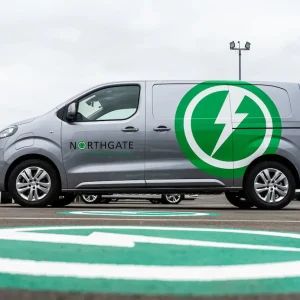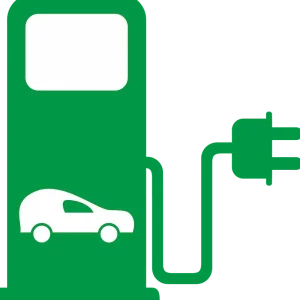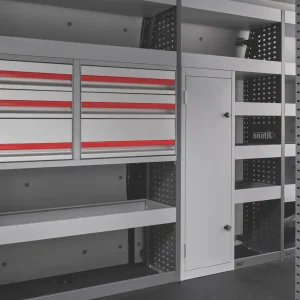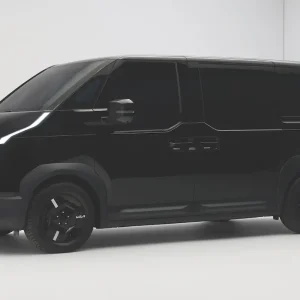 Turmoil in the financial markets looks set to have major implications for anybody planning to acquire a van. But although the upheaval will make things difficult, it won't render them impossible. "Funders won't necessarily be asking for a higher deposit," says Eddie Parker, lcv sales specialist at Masterlease. "What they will be doing, however, is looking a lot more closely at your business and asking some searching questions.
Turmoil in the financial markets looks set to have major implications for anybody planning to acquire a van. But although the upheaval will make things difficult, it won't render them impossible. "Funders won't necessarily be asking for a higher deposit," says Eddie Parker, lcv sales specialist at Masterlease. "What they will be doing, however, is looking a lot more closely at your business and asking some searching questions.
"Suppose, for example, that you've got a three-year contract with a customer, but you're acquiring your van over a five-year period," he continues. "The funders are going to want to know how you're going to keep up the payments once that three-year contract has expired.
"They're certainly going to want to see your latest set of accounts and they're going to be scrutinising them a lot more closely than they might have done previously. That's going to be the case no matter whether you go the hire purchase route or opt for contract hire."
"You'd be foolish if you dished out vans to every Tom, Dick and Harry without understanding the viability of their business," says Grahame Neagus, head of the specialist commercial vehicle unit at Lloyds TSB Autolease.
If the funders like what they see and you have a good track record, then finance should not be an issue. However you may find that you are paying a few percentage points more for your money than you anticipated.
Offered Rate
One of the big influencing factors here is the London Interbank Offered Rate — the rate of interest at which banks borrow money from one another — rather than the more widely-publicised Bank of England base rate, which is lower.
That's not to say that low/zero rate finance deals aren't available from dealers, but they are likely to be accompanied by conditions. Nothing new in that, but they may be more stringent than they were previously. The deal may be over a shorter period, for example, and a heftier deposit may be demanded.
Bank Loan
Using bank finance to obtain your van is likely to become more problematic than it was previously because banks are more nervous now than they have ever been about exposure to any one risk.
If you decide to purchase your vehicle with a bank loan, then discover that you need to increase your overdraft because you've hit a cashflow problem, you may find the bank will be reluctant to assist. You may even be asked to reduce your overdraft instead.
"If you've got a credit line with a bank, then in the current climate it makes sense to keep it open and use it for things other than acquiring a vehicle," Parker observes.
Loan Extension
Many light commercial operators who have contract hire agreements in place that are about to expire are extending them for another six months if their vehicles have been used sensibly and still have a bit of life left in them, says Neagus. They're doing so because they want to see what happens to the economy before they commit themselves to a new contract.
"Where people are signing new agreements they're often opting for longer ones — four years say, rather than three — to bring their monthly payments down," he says. "Vehicles are far more reliable than they used to be so there's little risk in pursuing this strategy and if a contract hire van does happen to break down you'll get a replacement anyway."
Mini-Leases
By contrast, Masterlease is finding that contract periods are shortening because clients are wary of committing themselves too heavily in the current climate. "We're finding that mini-leases — 12 month agreements — are proving popular," Parker says. "Customers are signing up for them, then opting for another mini-lease once the first one has expired if things are still going OK."
Numbers Count
"Something else we're seeing is operators looking more closely at the number of vans they're using and working out if they can get away with running, say, 20 rather than 25, without impairing operational efficiency" Neagus says. "They're looking more closely at the specification too, and in some cases they're swapping an under-utilised 3.5-tonner for what will be a fully-utilised 3.0-tonner," he continues. "If they go that route, however, they tend to specify a fairly powerful engine — 130/140hp rather than 90hp — because they know the van will be fully-laden and a less-powerful diesel will be over-stressed as a result." Under those circumstances the bigger engine will offer better fuel economy than the smaller one, points out Neagus.
"In the current climate van owners are also becoming more interested in doing what heavy truck operators have been doing for years and that's back-loading; picking up return loads if possible and practical so that vehicles aren't going back to their home base empty," he says. By doing so they're earning extra revenue.
Good Advice
One advantage of doing business with companies like Masterlease, Lloyds TSB Autolease and Lombard — download a copy of the What Van? Guide to Van Leasing produced in association with Lombard from the home page — is the quality of the advice they can provide. Fraikin offers the same sort of support service; one reason why Blantyre, Glasgow-based Dunns Food & Drinks decided to acquire six Isuzu NQR 7.5-tonners under a five-year full-service contract hire agreement with the company earlier this year.Dunns has been a Fraikin customer for seven years, says operations director, Julie Dunn. "Thanks to the detailed vehicle records it keeps, Fraikin has been able to help us analyse our needs based on past usage and projected future activities," she says. The advice given on fuel consumption, bodywork and refrigeration systems — the Isuzus are equipped with dual-compartment fridge bodies built by Tekbo — has been particularly useful.
Operating principally in Scotland, Dunns delivers a wide variety of catering supplies to hotels, pubs, clubs and other outlets. The Isuzus are set to cover around 35,000 miles apiece annually and are finished in the livery of the operator's Duncans Food Services division. Fraikin's Bellshill branch is just ten minutes away from Blantyre and maintains the NQRs.
Rent-a-Van
Renting a van rather than buying or leasing it becomes an even more popular option when times get tough because you can return it to the hire fleet without any penalty if you run out of work. Rental giant Northgate has been eagerly promoting its services with some useful offers, including free satellite tracking for three months and free online driver profiling so that employers can see which of their drivers present the greatest risk when out on the road. Armed with that information, they can get them retrained.
Insurance Matters
That's something which should gladden the hearts of insurance underwriters; and turning to insurance, premiums look set to rise gradually over the next year reckons Neil Walker, motor manager at Allianz, which owns Cornhill Direct. The cost to insurers of collisions and personal injury claims is driving this increase, he says, although its impact on light commercial owners is likely to be blunted by the intense competition between insurers for their business.
So how can van operators keep their insurance expenditure under control? "Have your vehicles insured for use by named drivers only," he replies. "Ideally they should have held a full UK licence for five years or more with no points on it, they should be over 25 and preferably over 30.
Excess
"Think about taking a higher voluntary excess if that makes financial sense and see if your insurer will allow you to protect your no-claims bonus," he continues. That could be worth doing given that no-claims discounts of as much as 65 per cent are available to owners who can stay claim-free for five years.
"If you've already got two vans with a no-claims bonus and you're looking to insure a third one that you've just acquired with the same insurer, then you should get an introductory premium discount on that vehicle," he adds. "Think about your mileage," he advises. "If your van has only done 5,000 miles every year for the past five years, then don't insure it as if it is going to do 20,000 miles annually."
Security
"So far as security is concerned, if a van is parked at home then we like to see it locked in the garage at night if at all possible," Walker says. "However one thing we certainly don't like to see is keys left in the ignition while a delivery is being made." If the van is stolen as a consequence, then insurers are becoming increasingly less likely to pay any claim.
Opting for third party, fire and theft cover only, rather than comprehensive insurance, could make sense if you're running an older van. Bear in mind though that comprehensive cover will be mandatory if you've acquired your vehicle under a finance agreement such as an operating lease.
Insure your van over the internet and you may enjoy a discount of 10 per cent or more from the insurer concerned. That's got to be worth having in these tough times. Don't neglect the traditional broker though, especially if your insurance needs are unusual or complex. If that's the case then a phone call to chat through your requirements or even a face-to-face meeting might just be preferable.
VERDICT
It's not all doom and gloom quite yet, but more than ever a bit of research can work wonders and perhaps make life a little bit easier further down the line if UK plc really does go tits-up.





